Jojoba Oil – 50ml
EGP170.00
- Lip balm to soothe dry, cracked lips,
- Anti-aging serum: you can apply it all over your face before bed.
- Improve Acne: It functions as a deep cleaning agent that clears blocked pores and soothes irritated skin with its anti-inflammatory properties.
- Makeup remover for oil-based makeup: Jojoba oil is safe to use around your eye area, unlike most other ingredients, which makes it a popular make-up remover.
- Treating skin conditions like acne, eczema, and psoriasis: Jojoba oil has a variety of healing, antiseptic and disinfectant properties that may make it effective in treating these conditions by eliminating harmful bacteria on the skin.
- (Multi-tasking Oil): Can be used as Cleanser, Moisturizer, Spot treatment, Hair shine enhancer, Face wash, Cuticle treatment, Foot softener and sunburn relief treatment
- Jojoba is also naturally antibacterial, antifungal, antiviral, analgesic, hypoallergenic, and anti-inflammatory.
- Hair that is dry and frizzy can benefit from Jojoba Oil’s conditioning properties, as they make hair more manageable and free from knots. When applied to damp hair, Jojoba Oil coats the hair shaft in its liquid wax and prevents it from drying by sealing in the moisture.
- Jojoba Oil can address fungal infections such as toenail fungus and Athlete’s Foot.
- Those with arthritis and joint pain can use Jojoba Oil blended with pain-relieving essential oils to ease discomfort, as it rapidly penetrates the skin to carry the analgesic properties of the essential oils to the affected areas.
Jojoba Oil – 50ml
Product description
- Jojoba oil is an oil-like wax extracted from the seeds of Simmondsia chinensis (jojoba) plant. The name Jojoba originates from the word Hohowi, a name given to the seeds – or the “beans/nuts” – by the O’odham, a Native American tribe that discovered the versatility of Jojoba seeds. The tribe created and used an anti-oxidant paste made from the nuts for skin and hair care purposes. In the 18th century, Native Americans ground Jojoba seeds into a cream to medicate the skin and condition the hair.
For medicinal purposes, they used the nut paste or the oil to treat sores, wounds, and burns.
It is closest to the oil produced by the human skin called ‘Sebum’ that helps protect and heal the skin from external toxins. It is the first defense barrier for the skin. Jojoba oil being the closest in construction to the human sebum is a natural replacement for it. When the body is unable to produce enough sebum to protect against harsh external elements, jojoba oil can be the perfect skincare solution.
Jojoba plant has natural ways of protecting itself from sun damage. “Jojoba is the only plant in the world known to produce pure liquid wax esters. It layers these long molecules in the outer layer of its leaves to stop UVB rays from penetrating its leaves.” It can do the same to your skin. Jojoba oil is packed with therapeutic benefits that can do wonders for the hair and skin. One of the most highly stable carriers, it may go cloudy and thick in cool conditions but will return to its natural state once warmed.
Benefits of Jojoba Oil:
- Retains Moisture: Jojoba oil is a humectant. This means that it works to seal your skin with a protective barrier to keep it from losing moisture without clogging the pores, allowing for a healthy skin type. This may help prevent bacterial infections, acne, and dandruff from forming.
- Antibacterial Properties: Jojoba oil contains antimicrobial and antifungal properties.
- Antioxidant Properties: Jojoba oil contains natural forms of vitamin E. This vitamin works with your skinas an antioxidant. This means that jojoba oil can help your skin fight everyday exposure to pollutants and other toxins.
- Noncomedogenic (It won’t clog pores): Jojoba oil is so similar to the oil (sebum) your body naturally produces that your skin can’t tell the difference. This makes it less likely to build up on your skin and clog your pores, leading to fewer breakouts and less severe acne.
- Hypoallergenic: Jojoba oil is a wax. Although it can be absorbed into your skin, its waxy nature allows it to create a soothing seal on the surface. It is typically nonirritating. Allergic reaction is rare.
- It helps control sebum production: Jojoba oil regulates sebum production because it’s so similar to the sebum that your body produces naturally. When you put jojoba oil on your skin, your skin is soothed and moisturized. This sends a signal to your hair and sweat follicles that your skin doesn’t need additional sebum for hydration. This keeps skin from looking oily and helps prevent acne caused by clogged pores.
- Balances Oily Skin: When skin is stripped of its natural sebum (via things like using a non-pH balanced cleanser), the sebaceous glands can go into overdrive. This creates a vicious cycle of oil overproduction—and over-cleansing—leading to breakouts. Jojoba can reset your complexion by bringing back balance.
- It may help promote collagen synthesis: The antioxidants in jojoba oil may help your body produce collagen. Collagen is a protein that’s in your skin and joints as well as the parts of your body made of cartilage. Collagen levels decrease as you get older. This is part of the reason your facial structure changes as you age. Antioxidants in Jojoba oil applied to the skin improve collagen synthesis.
- It may help speed up wound healing: Jojoba oil is a promising ingredient in stimulating wound healing. Jojoba oil encourages your skin cells to bind together after they’ve been separated by a scratch or cut. This may also be the reason for its ability to treat acne and acne scarring. These wound-healing properties could be connected to jojoba oil’s concentration of natural vitamin E.
- It may help soothe eczema, psoriasis, and other drying skin conditions: Jojoba oil has anti-inflammatory and healing properties. Topical application may help relieve dryness, flaking, itching, and related symptoms. People who have inflammatory skin conditions like psoriasis and eczema may find jojoba oil especially beneficial.
- It may help soothe sunburns: Jojoba oil is a popular ingredient in some natural sunscreen products. Vitamin E, when combined with other antioxidants, can help protect your skin from sun damage. Jojoba oil contains both. Sun damage can dehydrate your skin and cause flaking. Jojoba oil restores vitamin E, adds moisture, and promotes healing to soothe these symptoms of sunburns.
- Treats skin burns: Jojoba soothes any burnt skin by going deeper into the tissues and healing them, this helps the pain after a sunburn or tan. With its natural healing properties Jojoba oil is helpful in reducing skin burns during shaving.
- It may help treat acne: Jojoba oil can help keep acne at limit. Jojoba oil has soothing anti-inflammatory agents, healing properties, is moisturizing, and is a natural antimicrobial. These properties suggest that jojoba oil could help you avoid breakouts as well as promote healing for mild acne. Because jojoba oil is able to penetrate all the way down to the skin matrix, it can help active ingredients like salicylic acid and retinol along with it, allowing them to do their best work.
- It may help reduce the appearance of fine lines and wrinkles: There’s no research that links jojoba to treating wrinkles and fine lines directly, but other plant products with antioxidant properties have been shown to improve the elasticity of skin. This means that the antioxidant power of jojoba oil may help slow the signs of aging when used on your skin.
- It may help minimize the appearance of scars: Vitamin E has long been recommended by health professionals to help with scarring. Jojoba oil’s natural wound-healing properties combined with its vitamin E content, could minimize the appearance of scars.
- Prevents Hair loss and Promotes Hair Thickness: Because it strengthens hair, it is also thought that jojoba oil can prevent hair loss and promote hair thickness. The idea behind this is that the oil moisturizes hair follicles, which prevents dryness that leads to hair loss. Jojoba oil may indeed prevent hair breakage and strengthen your locks. It could also be helpful in treating dandruff, dry scalp, and itchy scalp.
- For soft lips: Since our lips are thrice more sensitive than our usual skin, it needs all the care. Jojoba oil contains essential vitamins such as Vitamin B, E and key minerals such as zinc, copper which are beneficial for soft lips and skin.
- Prevents Cold Sores: Jojoba is a cold sore preventative that really works. “The tingling people feel when a cold sore is emerging is the [herpes] virus moving up the nerve shaft feeding on oxygen. Jojoba applied to the area will quickly mix with skin sebum and block the flow of oxygen to the virus, which retreats back into the nerve shaft.” If jojoba is regularly applied the virus can never get the oxygen it needs to kick off. Jojoba also contains docosanol, which is an ingredient in commercial cold sore treatments.
How to Use:
- Makeup Remover: Apply a small amount into your palm. Using your fingertips, gently apply the oil to the areas where you want to remove makeup. Then, use cotton balls or warm water to remove the oil. Follow by washing your face with your favorite cleanser.
- Cotton Remover Pads: To make your own makeup removing pads, first place cotton rounds into a container and measure 4 tablespoons of Jojoba Oil. Pour the oil over the cotton rounds and allow them to sit and soak at least overnight. To use, gently wipe over your face to remove makeup.
- Moisturizer: Jojoba oil is an oil-like wax extracted from the seeds of the jojoba plant.
You can also mix it into a spoonful of your favorite moisturizer for an extra boost of hydration. “If you want to mix jojoba oil in with your moisturizer, make sure you are using an oil- or emollient-based product. The oil won’t mix well with water-based formulas.”
**As an Emollient: Add one ounce of corn starch and ½ ounce of Jojoba Oil to the blender and give it a whiz for about 30 seconds. Store this blend into an airtight container and add to your bath!
**Skin Soothing Mix: If you would like to add some skin soothing essential oils like Lavender in the blend as well, just add 9 drops to the Jojoba before putting it into the blender. You get to enjoy a relaxing bath while allowing your skin to absorb all the benefits that Jojoba has to offer.
**A moisturizing face mask: A few drops of Jojoba Oil can be added to a facial clay and applied a few times a week.
- Nourishing Lip Balm: Infused within a lip balm or used alone. Apply the oil to dry, cracked lips daily nightly before bed
- It can relieve sunburns: Rub a quarter sized amount into sunburnt areas to reduce inflammation and soothe the skin.
- It has antibacterial properties: Apply a dime sized amount to acne-prone areas in the morning and night as a spot treatment.
- It boosts skin’s glow: Apply five drops to your face in the morning and night after cleansing. It will absorb quickly and you don’t need to rinse any off.
- It fades fine lines and wrinkles: Use it the same way you would to boost your glow, by applying onto clean, dry skin morning and night.
- Hair Treatment:
**Apply directly: Warm the oil up beforehand so it’s easier to apply. You can do this in a clean pot on a stovetop or in a microwave-safe bowl. Use about 1 tbsp. for short hair and 2 tbsp. for longer hair. Apply to hair above the scalp, and work down evenly to hair tips. Leave in for about 20 minutes, and then shampoo, condition, and rinse. Avoid direct application to scalp to stay clear of clogged scalp pores. If applying for dry scalp or dandruff, add very little directly to skin (about 1–2 drops).
**Add to products: Drop a few drops of jojoba oil (about 3–5 drops) to a spoonful of your favorite shampoo or conditioner before use.
**For an oil that prevents hair loss and increases hair’s sheen: Rosemary Oil can be added to Jojoba Oil before being applied to the scalp and hair.
- To softens rough cuticles: Apply a small drop to each cuticle and massage in. If there is any excess oil, massage into the back of the hands and palms to keep hydrated, smooth hands.
**To make a cuticle balm with Jojoba: Melt 1 tbsp. of Beeswax in a double boiler. Next, add 2 tbsp of Jojoba and stir. Allow to re-melt if cooled slightly when Jojoba was added. Add ½ tsp of honey and stir to combine. Pour into tins or lip balm tubes and allow to cool completely before using on cuticles. Strong cuticles, healthy nails, and soft hands are within your grasp with the very effective and affordable Jojoba Oil.
- It can soothe eczema-prone skin: The combination of vitamin E and iodine helps heal inflamed or compromised skin, like that caused by eczema. Rub a quarter-sized amount onto affected areas to soothe and treat inflammation.
- Relaxing Massage: Add equal parts of Lavender and Peppermint in a 2% dilution mixture with Jojoba Carrier Oil and use for body massage, foot massage, or tightness from tension around the head and neck.
- Improve Acne: Mix jojoba oil with other natural acne-fighting ingredients into a DIY mask treatment.


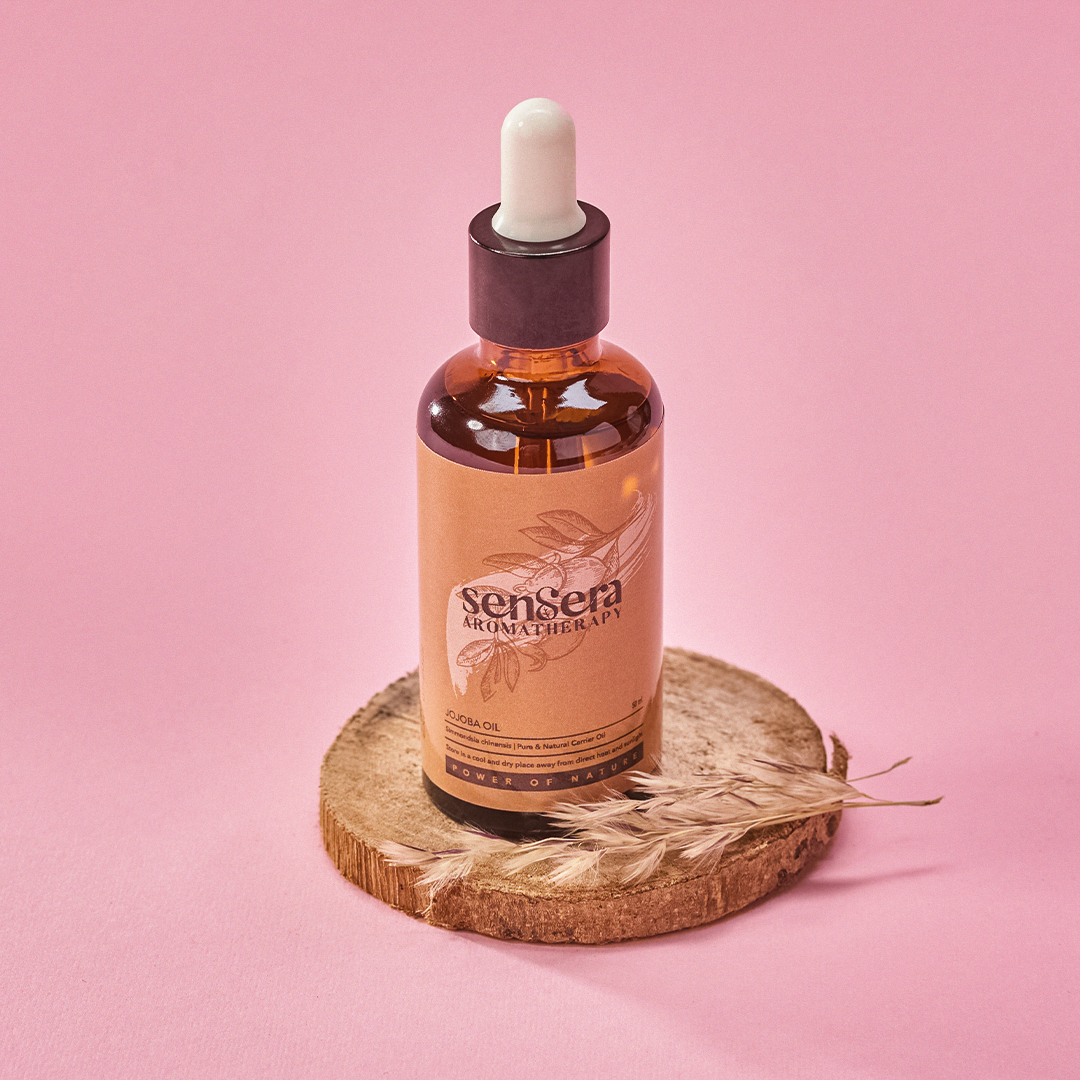
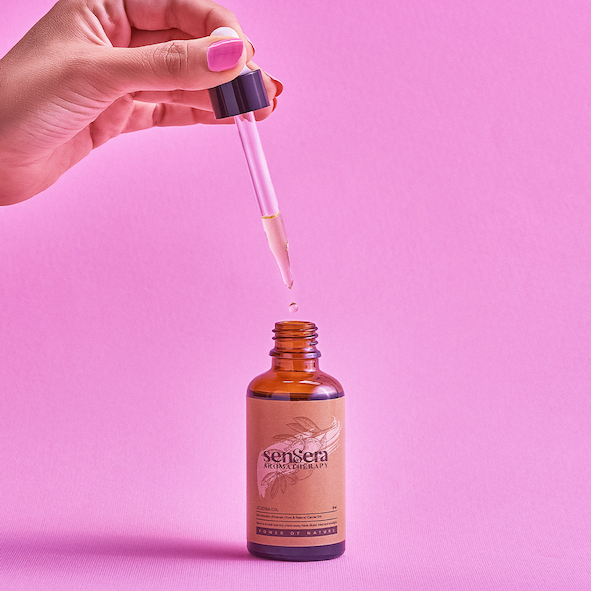
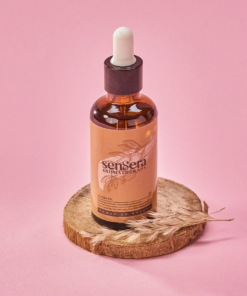
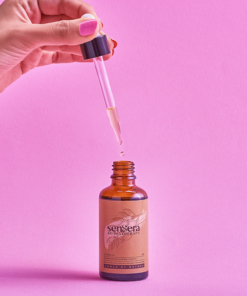
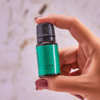
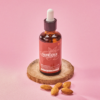
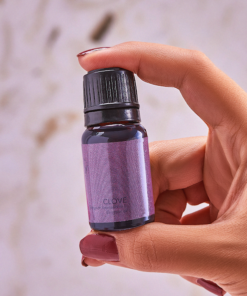
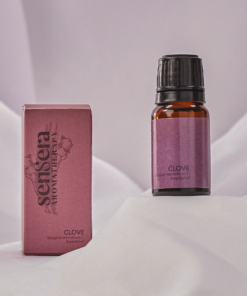
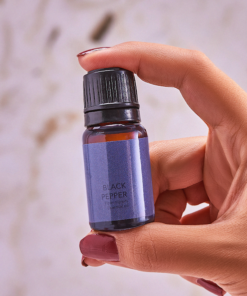
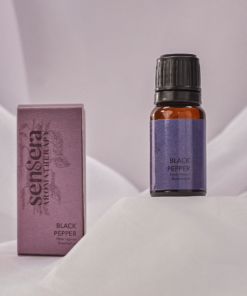
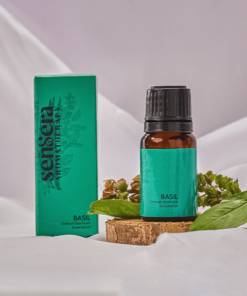
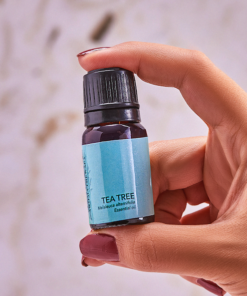
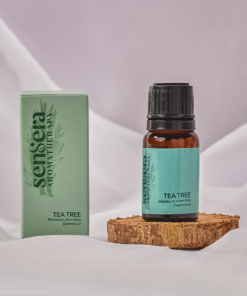
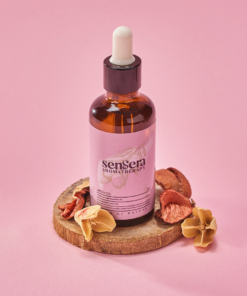
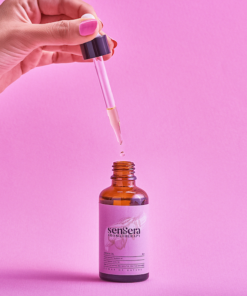
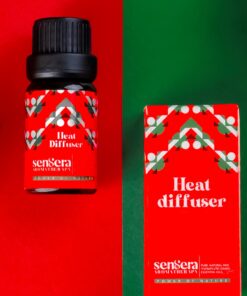
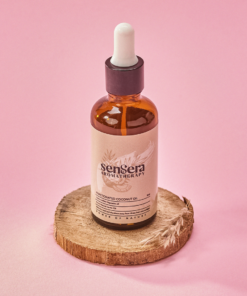
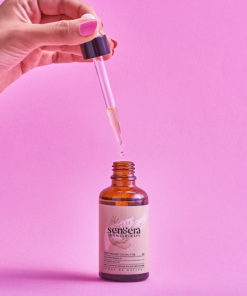
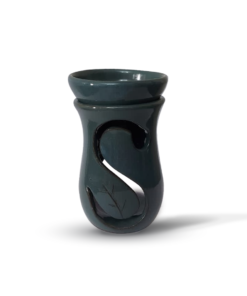
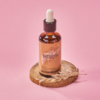
Reviews
There are no reviews yet.